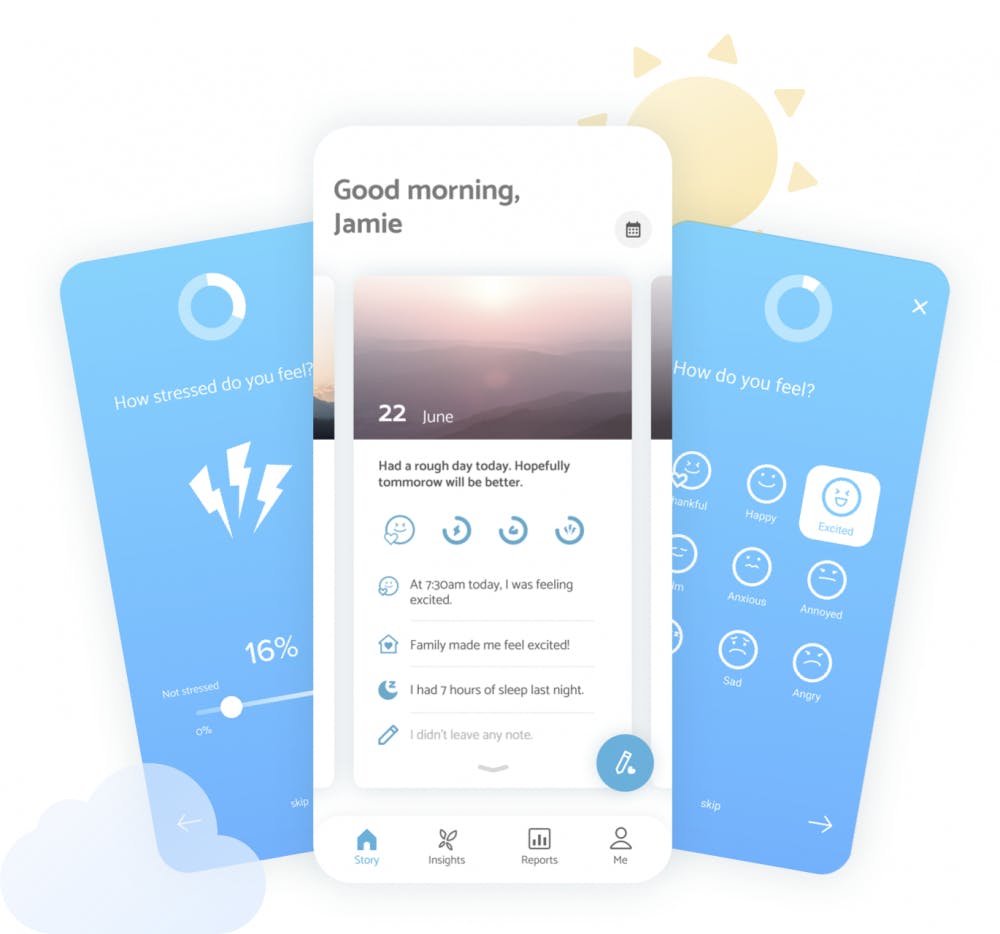As the COVID-19 pandemic continues to fill hospitals with patients, healthcare workers battle the virus while trying to maintain their own mental health. Cress Health, a mental wellness company, seeks to help address burnout among healthcare workers. The company was co-founded by student entrepreneurs Justin Kim ’21 and Michael Lai, a graduate of Hofstra University and incoming student at the Kellogg School of Management at Northwestern University.
Kim and Lai started Cress Health in 2018 to bring about more equitable access to mental wellness resources and have since worked closely with their Chief Technical Officer Yusuf Karim ’22 to develop mental health technologies.
Even before the COVID-19 pandemic, one of their goals has been to use their platform to address healthcare worker burnout, a problem that Kim described as a “silent epidemic.” One of the technologies Cress Health created to address this is a mental wellness app called the Cress app that was designed specifically for healthcare professionals.
The Cress app has three components: a peer support platform, a journaling feature and an analytics summary. These analytics provide tailored insights about a user’s wellness that come from the weekly journaling, Lai said.
Lai and Kim worked with clinical advisors and received direct feedback from healthcare professionals to develop the Cress app. The company got input from more than 300 healthcare workers when designing the product, Kim said.
“What I think we need more folks doing is really understanding what the problems are that people are facing,” said Elizabeth Malone, the assistant director of the Nelson Center for Entrepreneurship, who has helped advise Cress Health. The company was also selected to participate in the University’s 2020 B-Lab, a venture accelerator program through the Nelson Center.
Clinical Assistant Professor of Medicine and Pediatrics Nicholas Grumbach, a practicing physician and advisor to Kim and Lai, said that the Cress app could help healthcare workers deal with stressors inherent to the medical field. “It’s easy for doctors who are working hard and taking care of their patients to put all their energy, or a lot of their energy, into caring for their patients … sometimes forgetting about their own mental health,” Grumbach added.
The Cress Health team collaborated with faculty and physicians that felt they could benefit from the product, Malone said. “They heard from their customers that they were in urgent need of it,” she added.
The Cress app was born from this direct feedback from users and professionals. Some healthcare professionals at AMITA Health, one of the largest hospital systems in the Midwest, are already using the Cress app.
In upcoming weeks, Cress Health plans to roll out their app to healthcare workers in the Rhode Island Medical Society and in Beirut, Lebanon, which suffered from a damaging explosion Aug. 4 that resulted in thousands of injuries, according to BBC News.
While Cress Health has largely tried to address healthcare worker burnout, they have also seen a need for mental health support among younger members of the general public, Lai said. “As a direct result of COVID-19, we’ve heard from so many of our peers and our friends about the mental health toll that (the pandemic) has taken on them,” he added.
Consequently, Cress Health designed the Callie app to cater to the public and, specifically, the younger generations. Just like the Cress app, the Callie app uses journaling and analytics to give users time to reflect and learn about their mental health. But instead of a peer-support network, the Callie app provides a virtual AI, chat-based companion that takes users’ daily journal entries to create a wellness regimen customized to them.
Cress Health is also aiming to help refugees. They are partnered with the United Nations High Commissioner for Refugees and the Jesuit Refugee Service Organization in hope of delivering cost-free mental health services. Outside of physical health, one of the major concerns of leaders in refugee camps is the mental health toll placed on their inhabitants, Kim said.
Cress Health’s focus on the refugees, similar to their focus on healthcare workers and youth, stemmed from a need that was exacerbated by the pandemic.
Refugees “have been facing so much trauma already due to the fact that they're displaced from their homes and now … the pandemic going on (adds) fear and uncertainty,” Kim said.
“I think we’re going to continue to see the pandemic cause a lot of big problems to solve,” Malone added. “We need more (of Cress Health’s) thinking about how we solve problems caused by the pandemic.”

ADVERTISEMENT




